Struggling to create real estate posts for social media that actually grab attention? You’re not the only one searching for real estate ideas. Many agents recycle the same property listing posts or open house announcements, then wonder why their engagement rate barely moves.
What you need isn’t another bland update on real estate ideas. You need 100 Real Estate Posts for Social Media that stop the scroll, spark conversations, and position you as the agent buyers and sellers trust. From client testimonial posts to before/after renovation posts, these ideas bring fresh life to your feed.
This isn’t just a random list of real estate social media posts. It’s a collection of clever, ready-to-use ideas designed to work on Instagram, Facebook, LinkedIn, and even TikTok. Solo agents, small teams, or growing brokerages can all use 100 Real Estate Posts for Social Media to keep content calendars packed and brands front and center.
Real Estate Popular Social Networks
- Facebook remains one of the top places for real estate social media posts. With pages and scheduling tools, agents can share updates, listings, events, and bulk-schedule posts. These ideas fit perfectly into 100 Real Estate Posts for Social Media while boosting Facebook engagement strategies.
- Instagram-optimized content is a must. Reels and Stories showcase listings, client wins, or behind-the-scenes moments. Short videos and visuals keep feeds fresh, helping agents turn 100 Real Estate Posts for Social Media into scroll-stopping content.
- TikTok has become the new favorite for real estate content. Short creative videos, trending sounds, and quick home tours are part of growing TikTok real estate trends that connect with younger buyers.
- Twitter (X) is less about visuals and more about conversations. With the right real estate hashtags, agents can share market update posts, neighborhood spotlights, or even quick home maintenance tips.
- Pinterest works best as a visual inspiration board. From before/after renovation posts to interior design boards, Pinterest visual marketing helps agents share brand personality while attracting design-minded buyers. [Source National Association of Realtors]
100 Real Estate Posts for Social Media Platforms
Creating engaging real estate social media posts keeps agents connected with buyers and sellers while building a recognizable brand. Partnering with a real estate social media content creator makes it easier to stay consistent and publish polished posts.
The collection of 100 Real Estate Posts for Social Media is built to help agents and marketers publish fresh content that sparks conversations, drives engagement, and highlights expertise.
Many agents rely on real estate social media post templates because they make content creation faster and keep branding consistent across platforms. Templates save time and give posts a professional look. Examples of successful real estate social media posts include these 100 content ideas that generate leads, build trust, and keep audiences interacting.
1. Display New Listings

Share polished photos of new listings with standout features like a large backyard or modern kitchen. These posts belong in any list of 100 Real Estate Posts for Social Media because they show buyers real options while building interest.
2. Virtual Tours
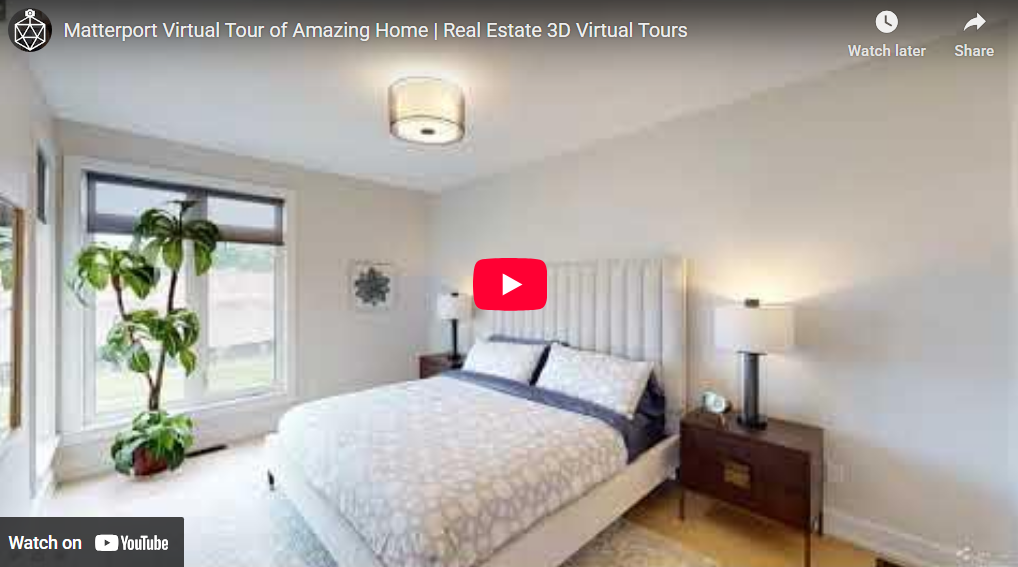
Create video walkthroughs that let buyers imagine themselves in the space without stepping inside. These tours, from open houses to recorded highlights, make strong additions to 100 Real Estate Posts for Social Media.
Realtors using video content often see higher engagement because audiences spend more time watching.
3. Open House Invitations
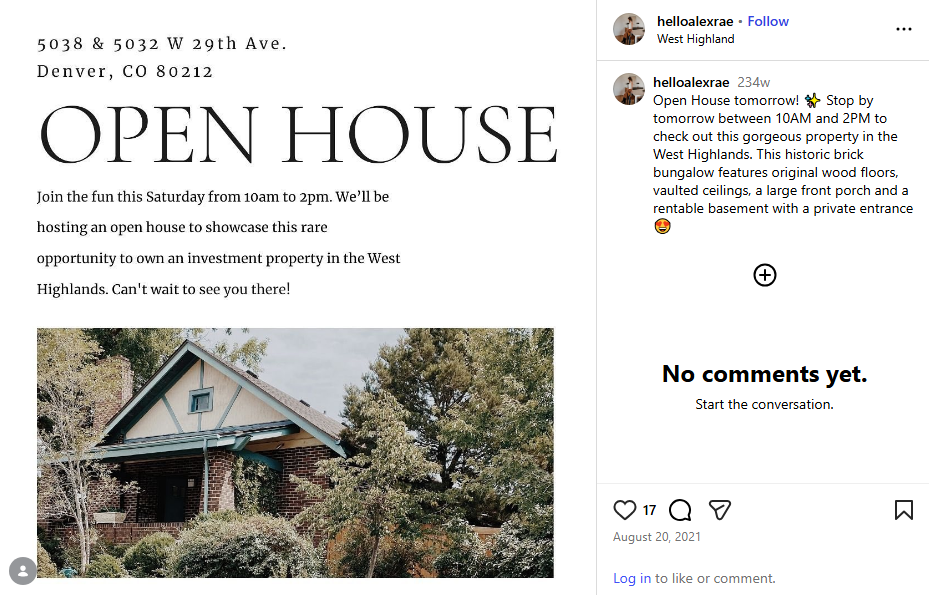
Promote upcoming events with clear times, dates, and property previews. Adding these to your set of Real Estate Posts for Social Media helps buyers plan visits and keeps your pipeline active. Virtual open houses create personal connections and save time for both agents and prospects.
4. Luxury Property Spotlight
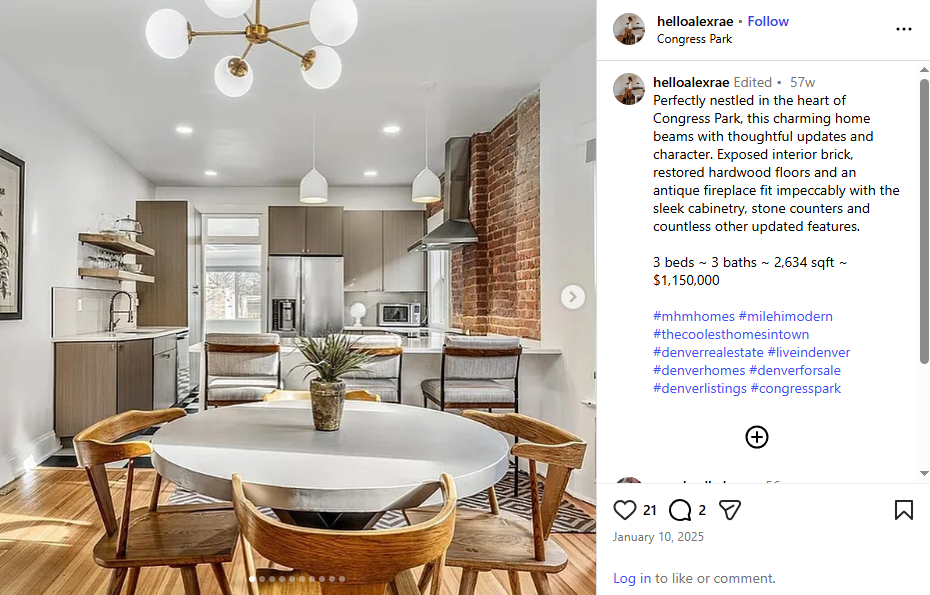
Use high-quality images and detailed descriptions to showcase luxury listings. These posts highlight your portfolio and appeal to high-end buyers. Within Real Estate Posts for Social Media, luxury spotlights stand out across Instagram Stories, Facebook feeds, and LinkedIn updates.
5. Before and After Staging of Properties
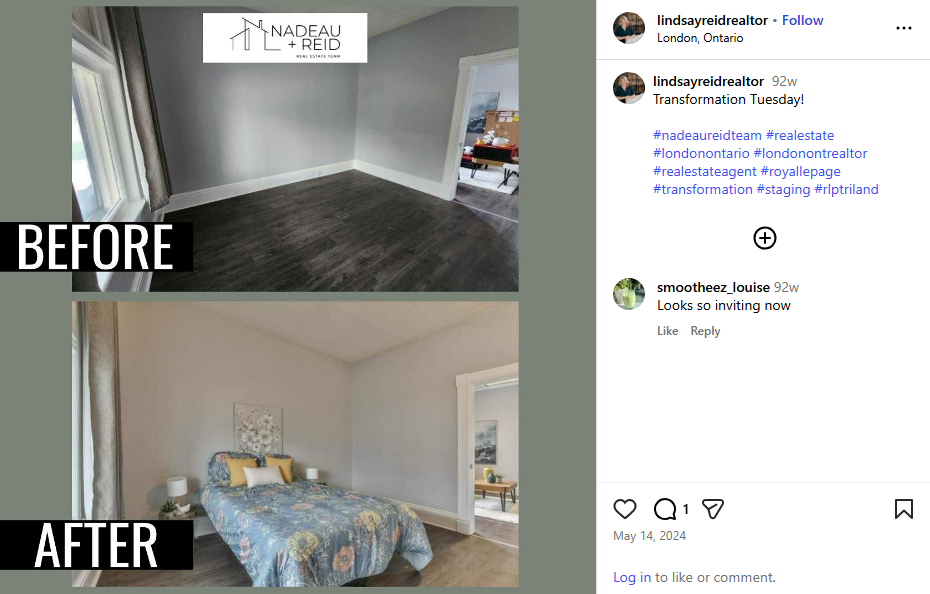
Share side-by-side images that show a home’s transformation after staging or renovation. These eye-catching updates make 100 Real Estate Posts for Social Media more engaging while proving the value of professional presentation.
6. Polls and Quizzes on Social Media Platforms
Run interactive polls or quizzes on social media to spark conversations. Ask followers which home features matter most: spacious kitchens, big yards, or energy-efficient upgrades. These real estate Facebook post ideas work well because they encourage participation, generate comments, and give you insights into what potential buyers value.
Polls and quizzes also help reveal trends in your local market, guiding future content and keeping your audience engaged a valuable idea to include in Real Estate Posts for Social Media.
7. Q&A Sessions on Real Estate
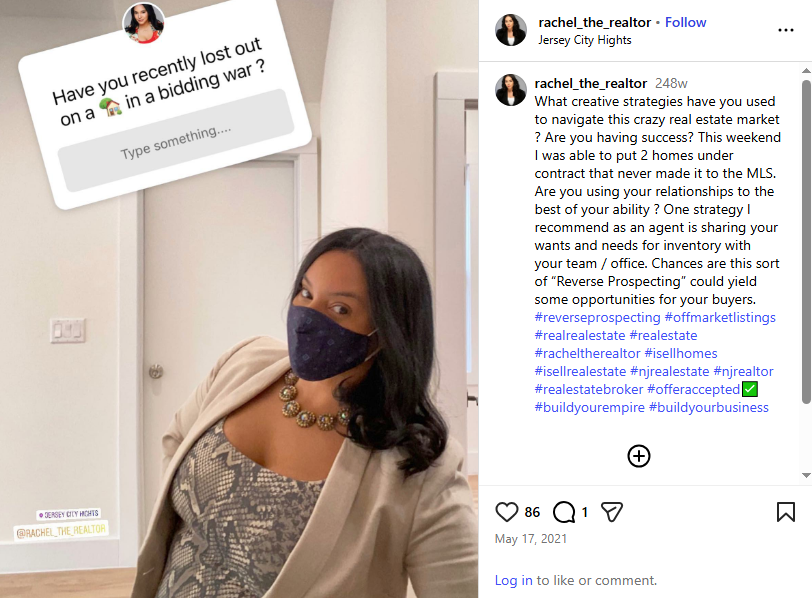
Host live Q&As to answer common market questions. These Real estate social media strategies build trust, encourage conversations, and make you a go-to voice in your area.
8. Contests and Giveaways Related to Real Estate

Run contests with simple prizes like gift cards or event tickets, a fun addition to 100 Real Estate Posts for Social Media that sparks engagement and builds community. These real estate engagement posts spark excitement and expand your reach in the local market.
9. Ask for Feedback on your Real Estate Project

Invite past clients or new buyers to share their experiences. Feedback posts boost credibility and show you value client voices.
10. Real Estate Market Trends
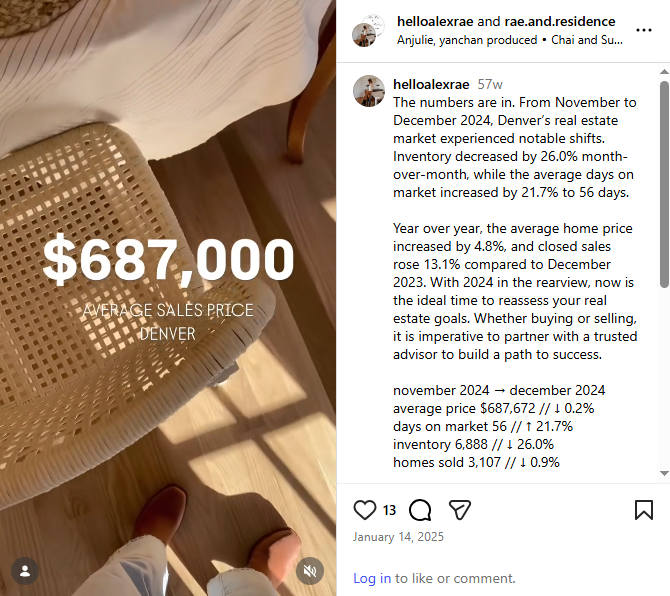
Share neighborhood statistics, housing trends, or shifts in interest rates to keep your audience informed. Market update posts give buyers and sellers the context they need to make smarter decisions. This type of educational real estate content also positions you as a trusted local expert.
Beyond numbers, you can include short explanations of what these trends mean for first-time buyers or sellers. Add visuals, such as charts or infographics, to make the data easier to understand, a smart addition to Real Estate Posts for Social Media that keeps your audience engaged.. These updates not only build credibility but also keep your feed fresh, making them strong additions to 100 Real Estate Posts for Social Media.
11. Explain the Buying Process of Real Estate

12. Selling Tips for Homeowners
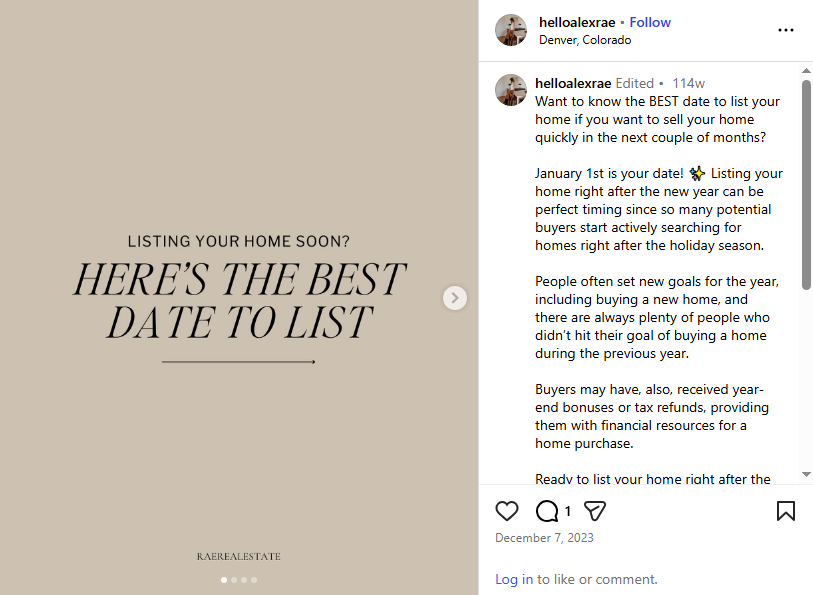
Help homeowners market their homes with clear, practical content ideas:
- Share posts explaining how real estate agents determine property values using market trends and comparable listings.
- Use social media platforms to explain how overpricing or underpricing can impact selling time and offers.
- Create short videos featuring marketing tools like open house invitations, property photos, or digital ads.
- Emphasize personal branding with posts that connect you directly to potential buyers.
13. Common Pitfalls in Real Estate
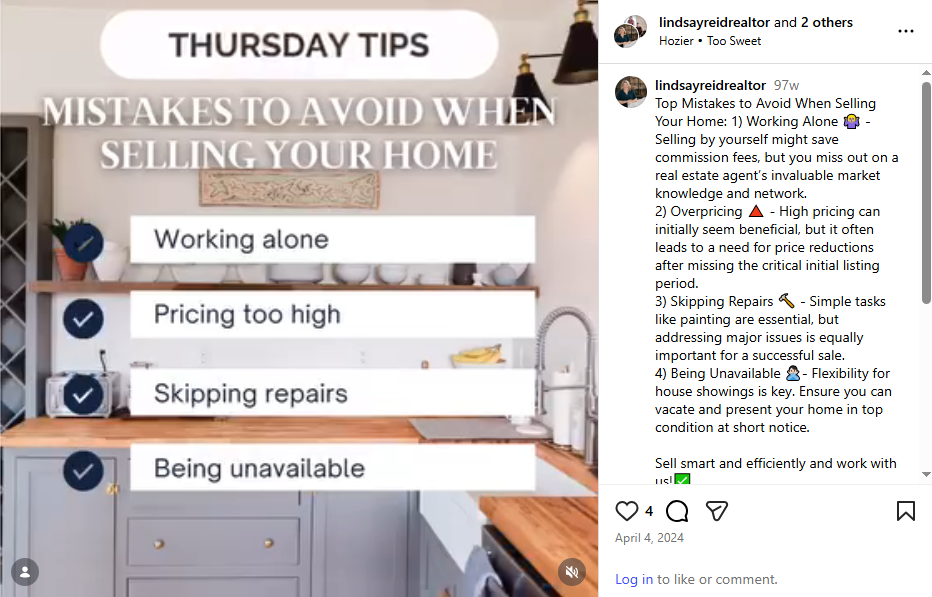
Posts about mistakes help buyers and sellers steer clear of problems. Here are content ideas:
- Share lists of common errors, like skipping inspections or ignoring local market updates.
- Add tips on avoiding these issues, such as working with an experienced real estate agent.
- Post updates on local and national housing trends to keep your audience informed.
- Use infographics to break down topics like interest rate shifts and how they impact buyers and sellers. buyers and sellers.
Including posts like these in 100 Real Estate Posts for Social Media strengthens your authority and gives clients practical guidance.
14. Home Maintenance Tips
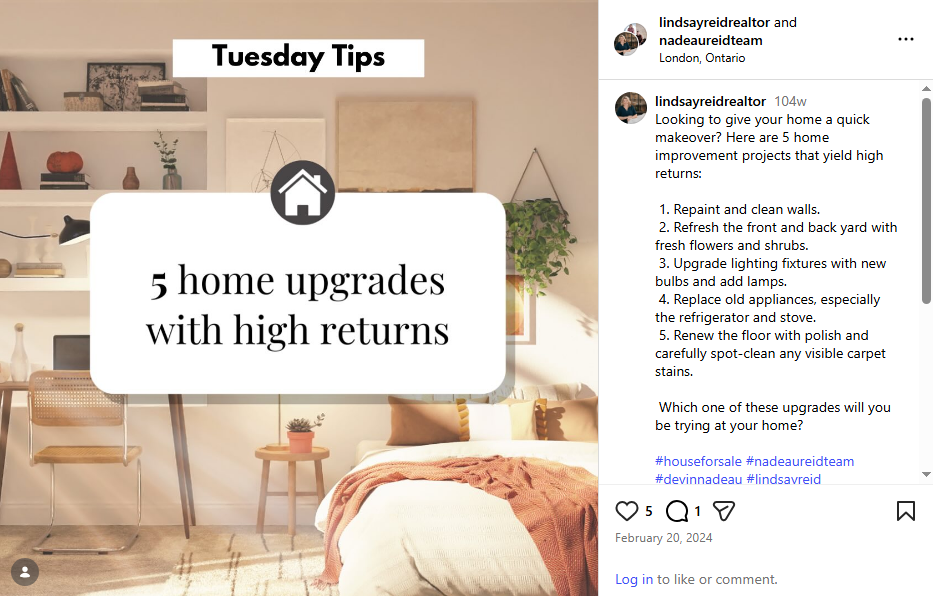
Home maintenance posts provide value for both buyers and sellers. Here are ways to create engaging content:
- Share Instagram Stories or short videos showing simple fixes you use in daily life.
- Create step-by-step guides for small repairs, like patching drywall or fixing a leaky faucet.
- Add visuals such as quick tutorials or clear photos of tools and materials of real estate
- Post eco-friendly ideas, like adding energy-efficient appliances or setting up a water-smart garden.
- Share seasonal tips on preparing homes for natural disasters or emergencies in your local market.
Adding these posts to 100 Real Estate Posts for Social Media shows clients you care about long-term value and homeowner education.
15. Local Business Spotlights – Real Estate Projects
Featuring local businesses highlights your community ties and supports the area’s economy. Post ideas include:
- Share real examples of how local shops, restaurants, or services add value to the neighborhood, resulting in strong Real estate marketing.
- Partner with businesses for promotions or giveaways tied to buyers, sellers, or new listings.
- Post high-quality photos of favorite cafés, restaurants, or boutique stores that give the area its charm.
Including local business spotlights in 100 Real Estate Posts for Social Media shows your audience you’re invested in the community, not just the transaction.
16. Neighborhood Amenities
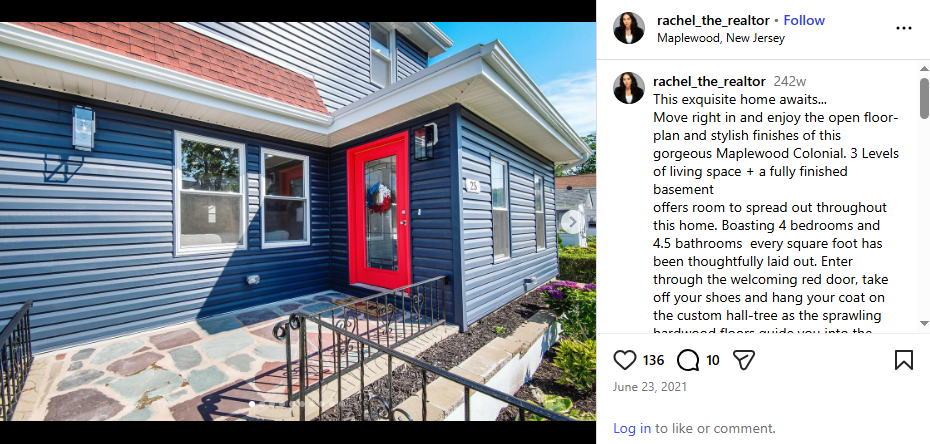
First-time buyers and families want to picture daily life in a neighborhood, and posts about amenities make that possible. Here are ways to bring Real Estate stories to life:
- Create infographics showing parks, schools, gyms, or recreation centers.
- Share authentic stories from families who moved into the area, focusing on what drew them there and how life improved, a meaningful addition to Real Estate Posts for Social Media that connects followers to local life.
- Post personal tips about choosing the right amenities for different client needs.
- Use short videos to explain how local features raise property value and attract first-time buyers.
- Craft narrative posts that walk followers through a “day in the neighborhood,” like grabbing coffee at a café or evening walks in a nearby park.
- Feature longtime residents sharing memories and how the community has grown.
Adding neighborhood-focused content to 100 Real Estate Posts for Social Media helps buyers imagine their future lifestyle while showing your deep knowledge of the area.
17. Community Events- Real Estate Idea
Community-centered content is an easy addition to your set of 100 Real Estate Posts for Social Media. These posts connect you with followers and show your involvement in the area:
- Share details about upcoming open houses, seasonal festivals, or local fundraisers.
- Post photos or short clips from past activities and invite followers to share their stories.
- Write a real estate post showing how neighborhood celebrations add character and support the local market.
18. Meet the Neighbors- Engaging Real Estate Idea
Sharing resident stories makes your content relatable and helps buyers picture life in the community. Try these Real Estate ideas:
- Share how residents have built connections with local businesses or nearby homeowners.
- Collaborate with neighbors to create short educational posts or home maintenance tips for future clients.
- Highlight what people love most about the neighborhood, from community gatherings to favorite local hangouts.
Neighborhood posts like these also work well as part of Real Estate Posts for Social Media, since they show both lifestyle and community spirit.
19. First-Time Buyer Journeys
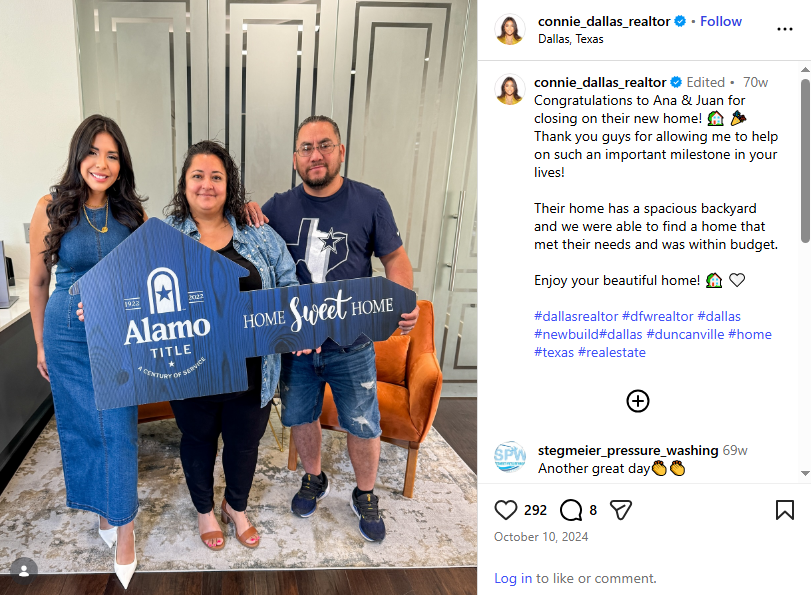
First-time buyers bring a lot of excitement and emotion to the process. A timeless theme that fits perfectly in Real Estate Posts for Social Media. Sharing their journeys makes your content relatable and inspiring. Post ideas include:
- Share posts showing each stage of working with first-time homebuyers, from learning their needs to walking them through closing.
- Post photos or videos of clients celebrating with “Sold” signs or holding keys to their new homes.
These journeys make powerful additions to 100 Real Estate Posts for Social Media because they show both your expertise and your clients’ joy.
20. Happy Clients’ Stories
Sharing past clients’ success stories builds trust and strengthens your reputation. Some post ideas include:
- Share transformation stories, such as families moving to a larger home or downsizing for retirement.
- Post direct quotes with photos to add authenticity and personality.
- Create short video testimonials for even more impact on Real Estate sales
21. Before-and-After Client Experience
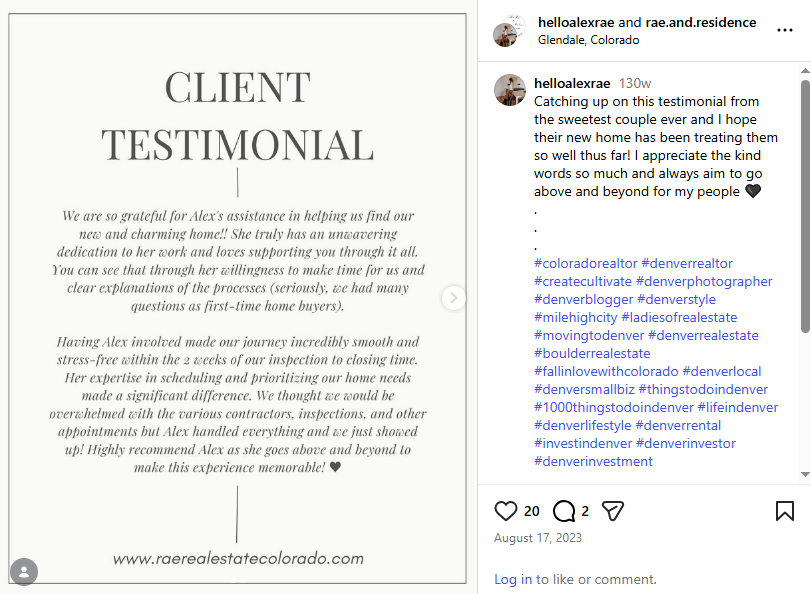
Show how clients’ lives change after finding the right property. Posts like these work well as part of Real Estate Posts for Social Media. Ideas include:
- Share side-by-side photos of old and new homes to capture the difference.
- Turn these stories into testimonials that give followers insights into buying or selling journeys.
- Post short, heartfelt video clips where clients talk about their experience.
22. Thank-You Posts for Referrals

Referral posts show gratitude and strengthen community ties. Here are ways to use the Real Estate idea:
- Share heartfelt shoutouts for people who referred buyers or sellers.
- Post reminders about referral perks, such as free resources or bonus marketing tools.
- Encourage followers to tag friends who may be looking for a real estate professional.
23. A Day in the Life of a Real Estate Agent
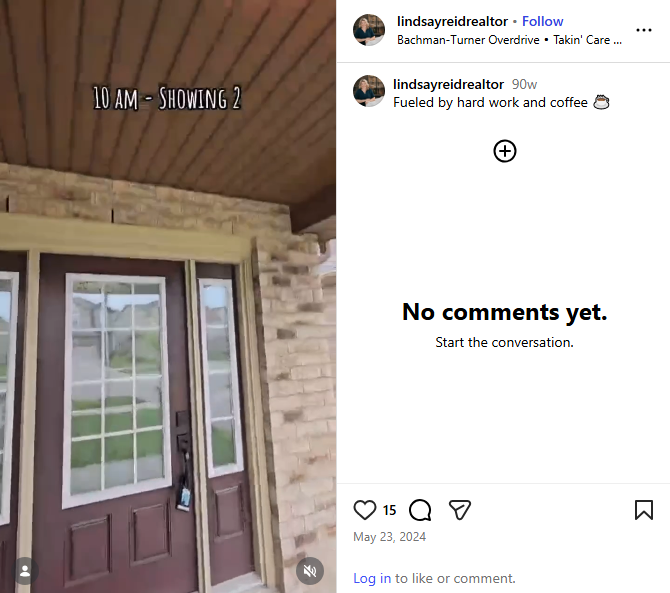
- Behind-the-scenes posts make your brand relatable and are a natural fit for 100 Real Estate Posts for Social Media.
- Share how your day begins with market updates, client meetings, and social media posting.
- Show tasks like touring property listings, meeting new prospects, or collaborating with other agents.
- Include moments where you connect with past clients or prepare follow-ups for future buyers and sellers.
24. Personal Stories Related to Real Estate
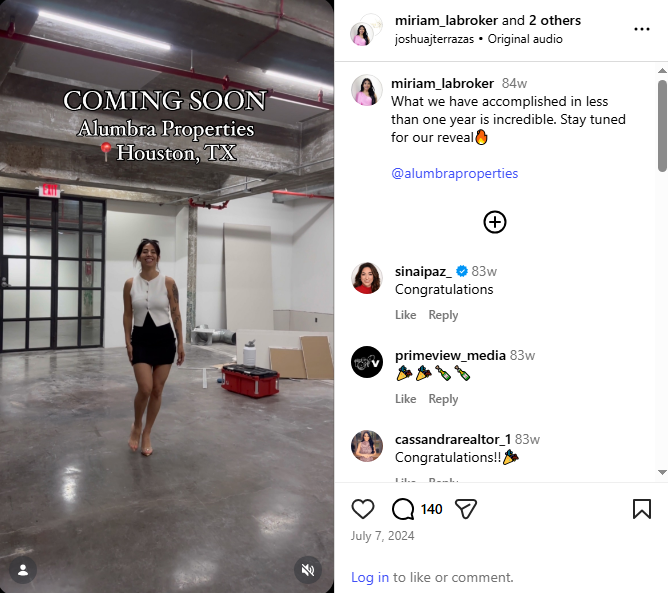
Share your professional journey to make your brand more authentic. Social post ideas include:
- Tell your story as an agent in the local market and how you’ve grown into a trusted community expert.
- Share how using real estate social media content helped boost engagement with both prospective clients and local businesses.
25. Real-Life Examples
Real stories connect with audiences better than abstract advice on Real Estate. Try these social post ideas:
- Show how tracking market trends and reading the local economy helped secure new clients in Real Estate
- Share a challenging property listing and how creative social media posts or strong visuals attracted the right buyers.
26. Holiday-Themed Listings
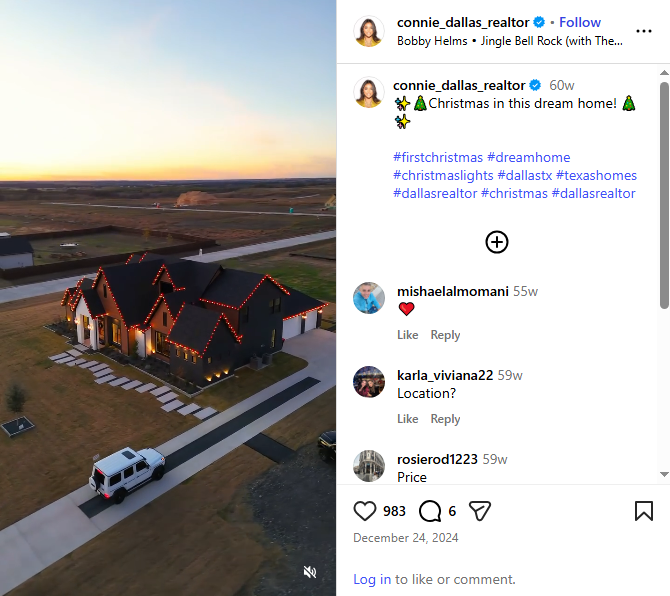
Seasonal décor makes listings stand out. Share posts featuring cozy fireplaces, festive kitchens, or decorated living rooms. Holiday listings add variety to 100 Real Estate Posts for Social Media and create a warm, inviting feel.
27. Holiday Greetings for Real Estate Marketing

Post warm holiday wishes to past and future clients. Use Stories or carousels to share greetings, and include personal moments from the year. Holiday content humanizes your brand and builds lasting connections.
28. Seasonal Market Updates Related to Related Social Media Marketing
Share posts explaining how the holidays affect the housing market. Examples include why winter may be a good time to buy or sell, plus seasonal tips for preparing homes. These updates keep your feed relevant.
29. Real Estate Quotes

Motivational quotes work well as filler content. Share posts that inspire followers while reinforcing your role as a trusted real estate professional. Quotes fit naturally into 100 Real Estate Posts for Social Media and are easy to reuse.
30. Celebrating Milestones- Engaging Real Estate Social Media
Celebrate achievements with your Real Estate audience. Post about sales milestones, first-time buyers getting their keys, or even your 100th transaction. These posts highlight success while making your brand more relatable.
31. Motivational Videos
Share short videos to inspire your audience. Show clips about selling success, lead generation, or tips for buyers and sellers. Video content drives engagement and fits well into 100 Real Estate Posts for Social Media.
32. Real Estate Memes
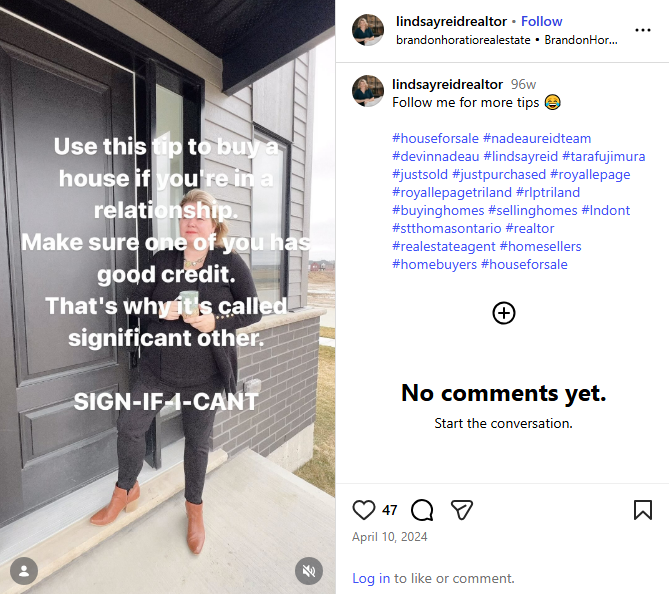
Humor makes content make real estate ideas more relatable. Share memes about buyer struggles, agent challenges, or property quirks. Funny posts humanize your brand, boost engagement, and make your real estate social media content more memorable.
33. Pet-Friendly Homes
Feature properties that appeal to pet owners. Highlight large backyards, pet-friendly neighborhoods, or homes near parks. Posts like these resonate with a broad audience and help buyers picture their lifestyle.
34. Lighthearted Observations on Real Estate
Post funny or quirky stories from your work. Examples include unusual property features or humorous open house moments. These posts keep your feed entertaining and show the human side of real estate.
35. “Caption This” Posts on Real Estate
Share funny or intriguing property photos and invite followers to “Caption This.” These interactive posts spark engagement and are easy to include in 100 Real Estate Posts for Social Media.
36. Share Relevant News or Updates

Post about housing trends, industry news, or updates from the National Association of Realtors. Sharing news keeps your followers informed and reinforces your role as a knowledgeable local real estate professional.
37. Voice Your Opinion on Real Estate Market

Share your perspective on market updates, local economy changes, or common housing challenges. Opinion posts help followers see you as a trusted voice in the real estate community.
38. Promotional Offers and Discounts- Real Estate
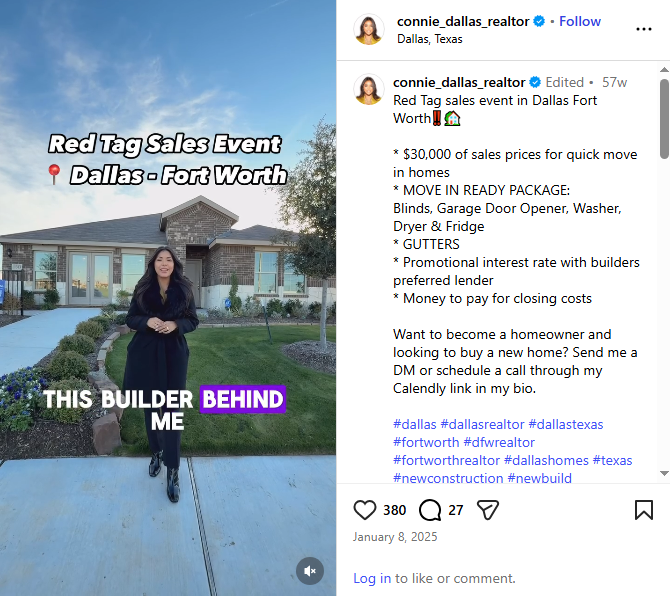
Announce promotions such as seasonal discounts, free resources, or bonus services. These posts draw interest from first-time buyers and keep prospective clients engaged.
39. Promote Business Partners
Partner with local businesses like contractors, stagers, or landscapers. Tag them in posts to build relationships while giving followers real-life examples of trusted professionals.
40. Play Fun Games
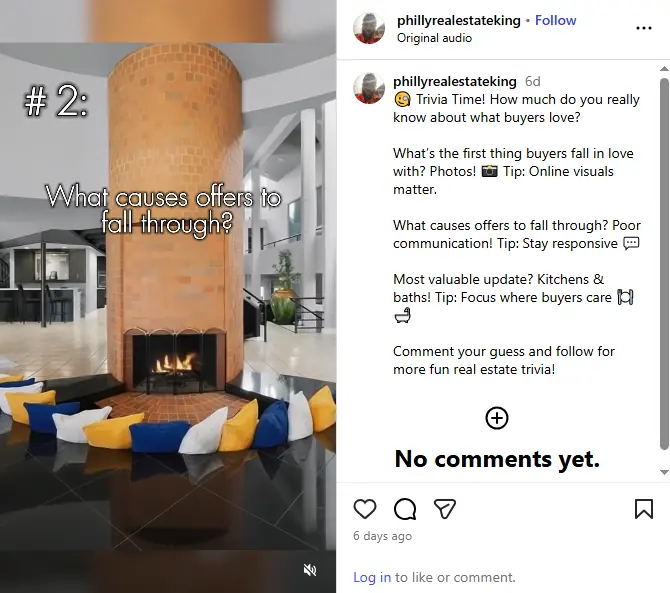
Post interactive content like trivia, polls, or quizzes. Examples: test knowledge about home buying steps, ask about favorite neighborhood features, or run dream home style quizzes. These playful posts add variety to real estate posts for Social Media.
41. Automate Postings
By creating automated real estate social media posts, you maintain steady visibility across multiple platforms without the stress of posting every day. These tools also free up time for client meetings, property tours, and negotiations, while still keeping your brand active online. Automation-focused content fits naturally into real estate posts for social media because it shows both efficiency and professionalism, making it easier to stay connected with your audience year-round.
Automation helps agents stay consistent without daily manual posting. Tools like RecurPost allow you to schedule content in advance, covering property listings, open houses, and client testimonials.
42. Real Estate Social Campaigns
Run targeted campaigns around new listings, first-time buyers, or eco-friendly homes. Campaign-based posts let you tailor messages for specific audiences and keep your content mix fresh.
43. Feature Upcoming Developments
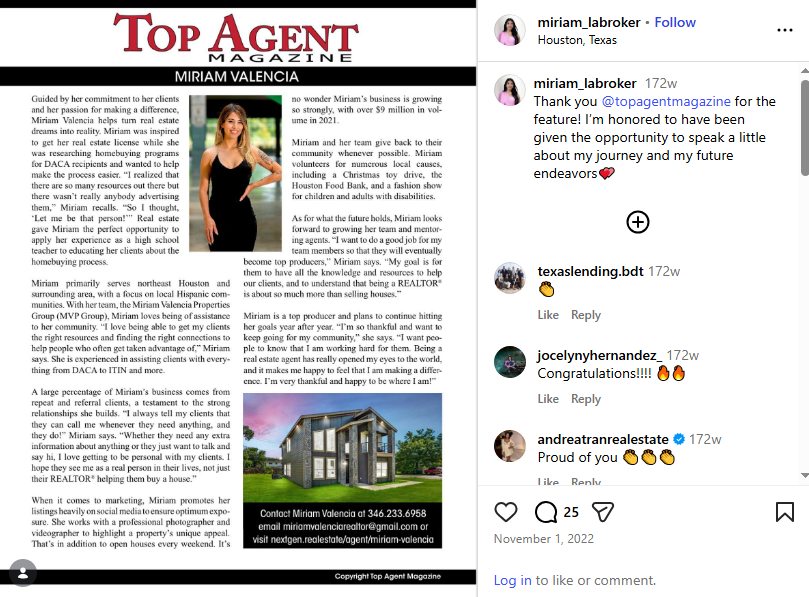
Post about new housing projects or community builds. Use quality photos and videos to highlight features that appeal to future clients and prospective buyers.
44. Share Tips for Moving
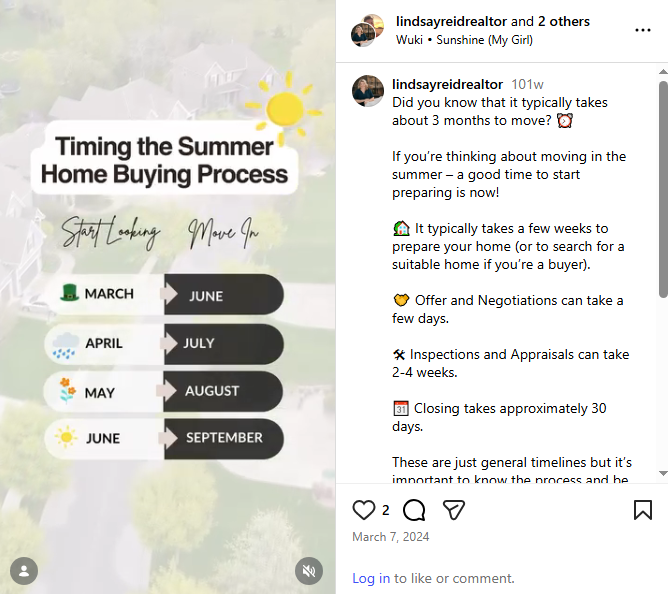
Share moving checklists, relocation advice, and simple home maintenance tips. These posts help first-time buyers and serve past clients preparing for their next move.
45. Focus on Real Estate Content
Keep your feed centered on real estate. High-quality posts build trust, connect with people, and improve brand awareness. Clear, engaging content attracts attention and makes buying or selling easier for your audience.
46. Debunking Real Estate Myths
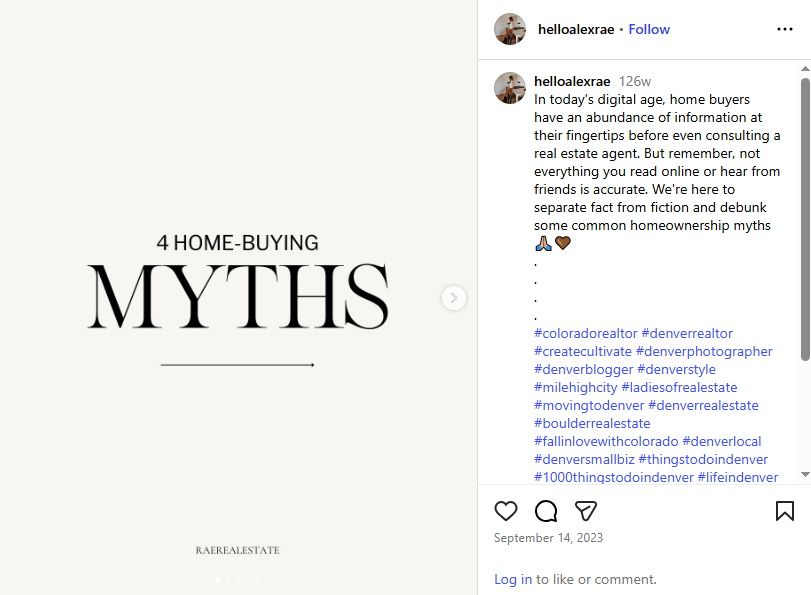
Share posts that clear up misconceptions about financing, appraisals, or the role of agents. Myth-busting posts add credibility and give followers confidence in your knowledge.
47. Conduct Market Predictions
Share your outlook on where the housing market is heading. Back predictions with data or trends to keep followers informed and attract potential clients.
48. Collaborate with Influencers
Team up with local influencers to expand your reach. They can showcase listings or share your expertise, introducing you to new audiences.
49. Share Investment Opportunities

Post about rental homes, fixer-uppers, or growing neighborhoods. Investment-focused posts help buyers expand their portfolios and fit well into real estate posts for social media.
50. Promote Energy-Efficient Homes
Highlight eco-friendly homes with features like solar panels, smart thermostats, or energy-saving appliances. These posts attract environmentally conscious buyers while showing the value of sustainable living.
51. Recap Your Year in Real Estate
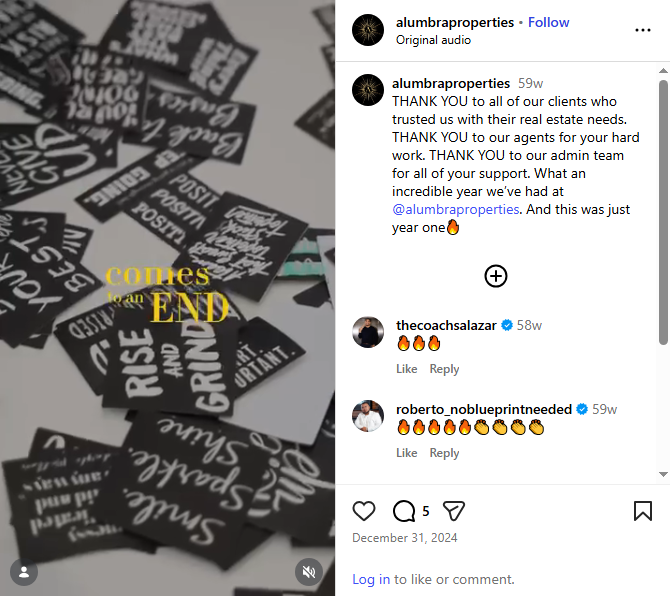
Share an annual recap with posts highlighting homes sold, milestones achieved, and testimonials from happy clients. These posts showcase your growth while connecting with your audience on a personal level.
52. Share Your Articles and Blog Posts
Turn blog articles into engaging social media content. Share links to your latest posts with clear captions, and break long articles into digestible snippets for platforms like Instagram or Facebook.
Repurpose blogs into carousels with key takeaways, quote graphics, or branded visuals featuring stats. Add teaser videos or story highlights to spark curiosity.
Use strong calls-to-action that encourage clicks, shares, and saves. Blog-based posts fit perfectly into real estate posts for social media, giving you an easy way to showcase expertise while boosting reach.
53. Share Company/Firm News
Share posts about company achievements such as awards, new hires, or partnerships with other agents. This type of content boosts your professional image and keeps followers updated on your progress.
54. Introduce Your Team Members
Create posts that spotlight team members with short bios, their roles, and a fun personal fact. These introductions build trust and make your brand feel approachable.
55. Showcase DIY Projects
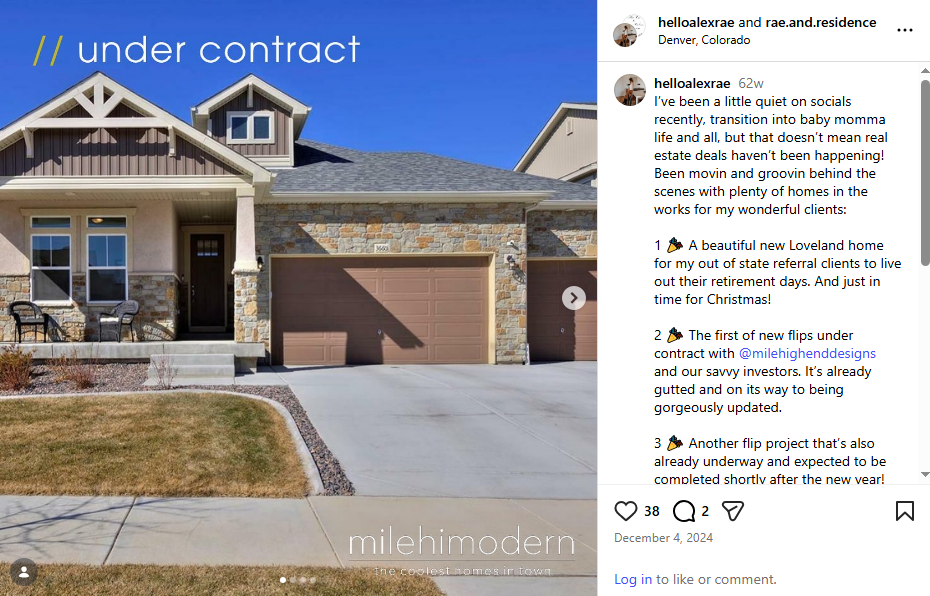
Post step-by-step DIY projects like garden upgrades, small renovations, or décor tips. These posts add value, increase engagement, and give homeowners useful ideas.
56. Share Your Recommended Books Related to Real Estate
Recommend books on real estate, investing, or personal growth. Pair suggestions with a short caption about why you enjoyed the book to spark conversations with clients.
57. Throwback Posts of Related Estate – A Standout Feature in Real Eatate.
Post throwbacks to sold properties, client stories, or past community events. These nostalgic posts build authenticity and remind followers of your experience.
58. Host or Share Podcasts to Promote Brand’s Real Estate Marketing.
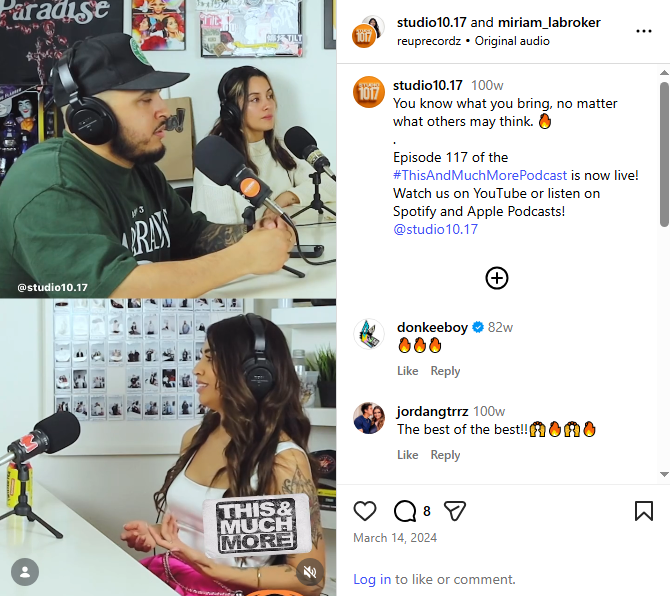
Promote or host podcasts covering real estate trends, testimonials, or neighborhood amenities. Share episode highlights as posts or stories to attract listeners and add depth to your feed.
59. Simplify Real Estate Terminology
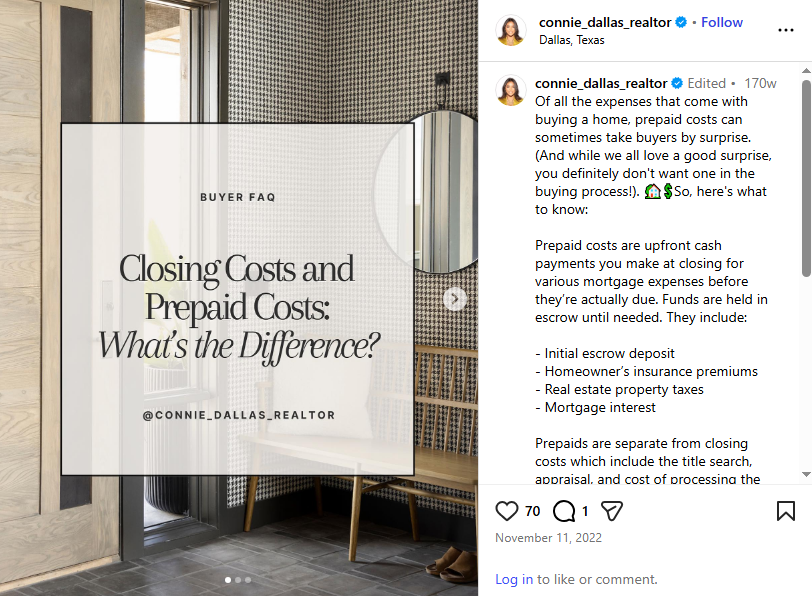
Translate industry jargon into easy-to-understand posts. Examples: explain escrow, appraisals, or closing costs in plain language. Posts like these help first-time buyers feel confident and work well in real estate posts for social media.
60. Invite Guests for Real Estate
Collaborate with local businesses, stagers, or fellow agents for guest appearances. These posts expand your reach and add variety to your feed while building valuable community ties.
61. Importance of Technology Tools in Real Estate
Showcase tools that automate posting and keep content consistent across platforms. Apps like RecurPost or Hootsuite help real estate agents save time, generate leads, and stay focused on selling. Posts like this also work well in real estate posts for social media.
62. Birthday and Anniversary Greetings
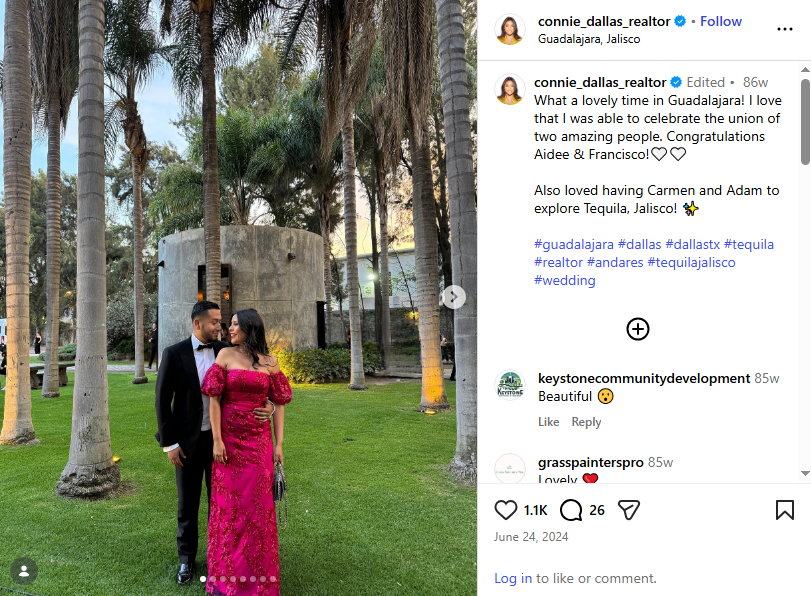
Share personalized posts celebrating birthdays and anniversaries of past clients. These thoughtful touches strengthen relationships and keep your brand memorable.
63. Renting Tips
Post advice on renting: lease terms, budgeting, or dealing with landlords. Renting content provides value, especially for first-time tenants, and positions you as a trusted guide.
64. Local Flare and Lifestyle
Share posts about neighborhood amenities, events, or lifestyle perks. Local content attracts buyers looking for community details and helps you stand out as a neighborhood expert..
65. Home Improvement Ideas
Post tips on affordable upgrades like kitchen updates, fresh paint, or garden makeovers. These ideas increase property value and inspire both current homeowners and potential buyers.
66. Real Estate Finance
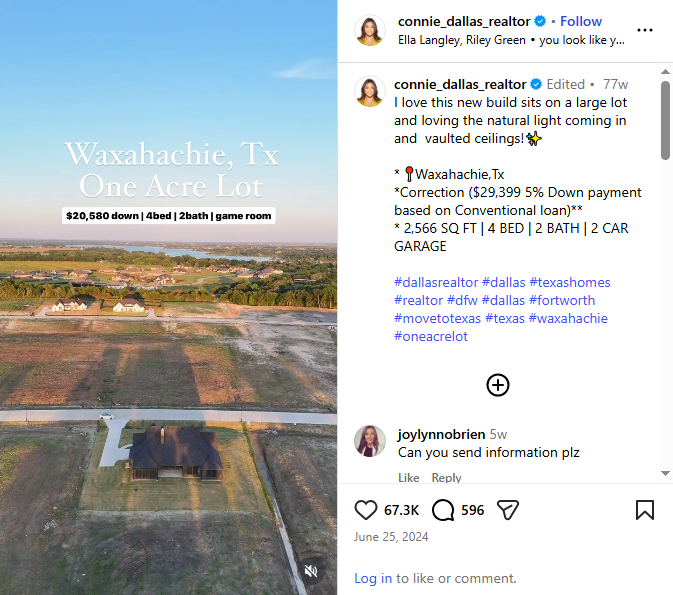
Break down finance topics into clear posts: home loans, mortgage rates, or simple budgeting tips. These finance-focused posts make a strong addition to real estate posts for social media and are helpful for first-time buyers.
67. Educate About Tax Implications
Share posts about tax benefits, deductions, and what buyers, sellers, or investors should know. Explaining tax topics in simple terms gives your audience confidence in making real estate decisions.
68. Promote Your Services

Create posts reminding followers of your services, from new listings to property tours. Pair them with testimonials or real-life examples that show how your work helps clients achieve their goals.
69. Share a Sneak Peek of a Soon-To-Be-Listed Property
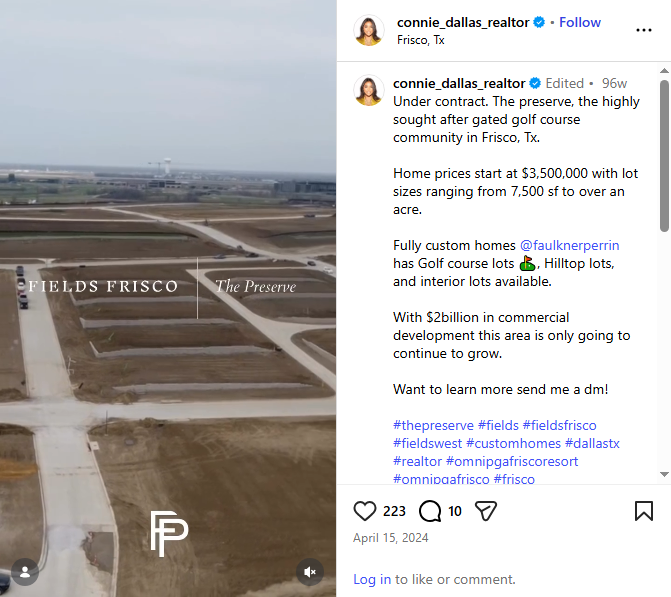
Build excitement with teaser posts. Share high-quality photos of soon-to-be-listed homes, highlighting features like location, design, or amenities to capture attention.
70. Spotlight ‘Property of the Week’
Dedicate weekly posts to one standout property. Showcase features, design highlights, and professional photos. A recurring feature like this adds consistency and works well in real estate posts for social media.
71. Participate in Trending Hashtags
Join trending conversations by using hashtags like #OpenHouse or #FirstTimeBuyerTips. These boost visibility, attract new followers, and work well within real estate posts for social media.
72. Share Home-Related Helpful Products
Suggest tools or products that help homeowners, such as smart devices, eco-friendly gadgets, or home maintenance tools. These posts add value and spark conversations.
73. Share Home Décor Ideas
Post décor ideas like space-saving furniture, trending color palettes, or seasonal styles. Décor-focused content appeals to clients who enjoy stylish living and inspires homeowners.
74. Share Photos of Properties in Prime Locations
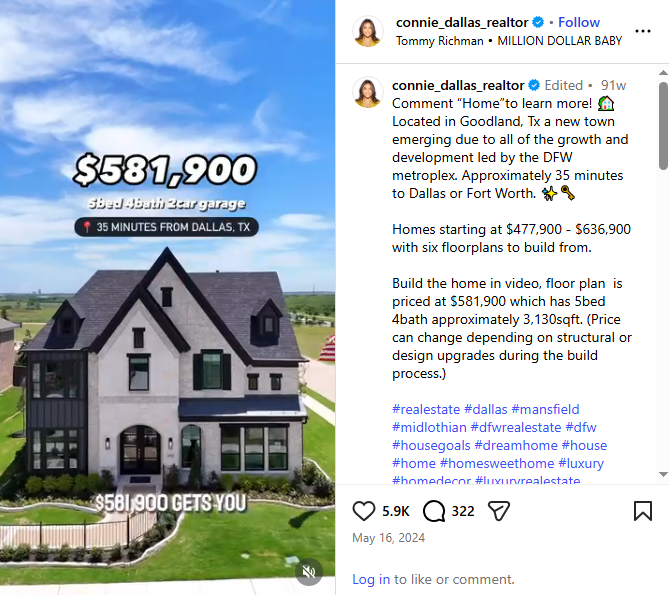
Showcase listings in prime neighborhoods with strong visuals. Highlight location perks, nearby schools, or lifestyle amenities. Posts like this make standout additions to real estate posts for social media.
75. Famous Tourist Points
Share posts about attractions near your listings, such as parks, museums, or entertainment hubs. These lifestyle details help buyers picture what living in the area feels like.
76. Listings of Heritage Sites
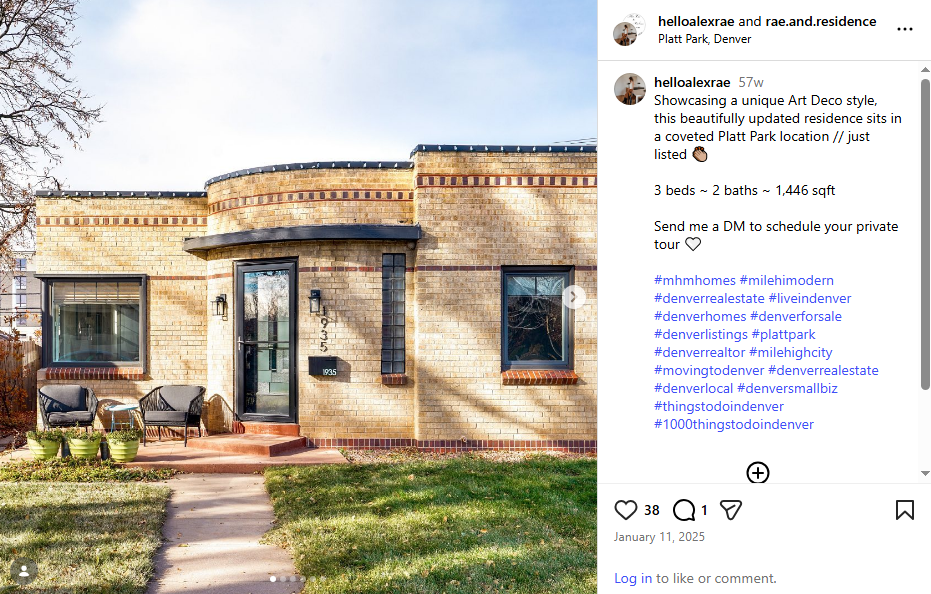
Feature posts about historic landmarks near properties. Heritage-focused content appeals to buyers who value community and shows how location history supports property value.
77. Share a Calendar of Upcoming Events
Post a calendar of open houses, festivals, or fairs. Event-based posts keep your feed active and attract both buyers and community followers.
78. Inspire Upcoming Real Estate Agents
Share your journey as an agent and advise newcomers. Posts like these foster industry connections and showcase your experience as part of real estate posts for social media.
79. Recalibrate Content from Other Social Media Channels
Adapt content for multiple platforms. Convert Instagram Stories into LinkedIn posts or turn Facebook updates into short tweets. Repurposing saves time and keeps feeds consistent without extra work.
80. The Future Market & Trends
Share insights about emerging neighborhoods, shifting buyer preferences, or demographic changes. Market trend posts reinforce your expertise and keep audiences engaged.
81. Smart Home Trends
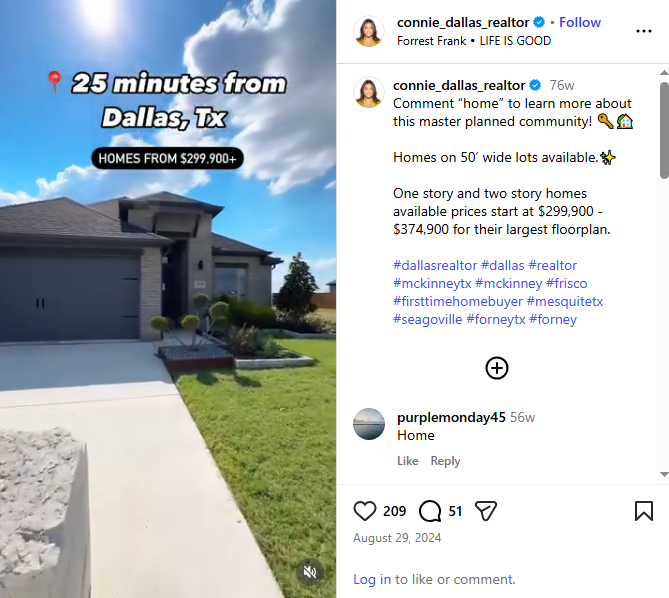
Share posts about homes with smart features like automated lighting, security tech, and energy-efficient systems. Modern amenities draw buyers, and posts about them work naturally in real estate posts for social media.
Feature affordable homes designed for families or first-time buyers. Highlight layouts, pricing, or neighborhood amenities that make them attractive in the local market.
83. Pay Guest and Hostel Facilities
Post about available PGs and hostels near schools, offices, or transport hubs. Share real-life examples of popular facilities and explain their importance for students and working professionals.
84. Impact of Inflation
Create posts explaining how inflation changes property values, mortgage rates, and buying power. Use simple charts or infographics to make the topic easy to grasp for clients.
85. To-Do and Not-To-Do Lists in Your Locality
Share posts with dos and don’ts for buyers exploring your area. Include tips like the best times to tour homes, where to check schools, and common pitfalls to avoid.
86. Updates About Govt Rules and Policies
Post updates on new real estate regulations, tax policies, or housing incentives. Explain how these changes affect buyers, sellers, and investors in simple terms.
87. Halloween and Black Friday Sale
Create seasonal content around Halloween, Black Friday, or other events. Pair property listings with festive décor or promote community events to boost engagement.
88. Actionable Tips and Advice
Post practical advice like staging ideas, highlighting amenities, or preparing for an open house. Tips like these are easy to implement and add variety to real estate posts for social media.
89. Benefits of Ownership
Share posts explaining ownership perks such as equity growth, stability, and tax advantages. Use real-life examples to appeal to both buyers and investors.
90. Limitations of Rented Out
Post comparisons between renting and owning. Mention downsides of renting, like lack of equity or restrictions, while highlighting the benefits of homeownership. These posts guide renters toward considering a purchase.
91. List of Real Estate Apps
Share posts recommending property search apps, mortgage calculators, or home valuation tools. Tech-based posts like this add variety to real estate posts for social media while helping clients simplify the buying and selling process.
92. Tips to Resolve Disputes
Create posts that explain how to handle common conflicts, such as rent delays or repair requests. Sharing clear solutions shows problem-solving skills and builds trust with your audience.
93. Updates about Brokers Community
Post about achievements, collaborations, and success stories from the broker community. These updates connect you with peers and highlight industry involvement.
94. Updates about the Code of Ethics in Social Media
These posts show professionalism, reflect that you stay informed on industry standards, and fit seamlessly into 100 Real Estate Posts for Social Media.
95. Social Media Presence Learnt from Your Experience
Write posts about challenges you’ve faced in sales and what you learned. Real-life lessons give homebuyers and sellers valuable insights while making your brand relatable.
96. Spreading Awareness
Warn followers about scams, especially those targeting first-time buyers — a timely topic that fits perfectly within Real Estate Posts for Social Media.
97. Comparison with Competitors
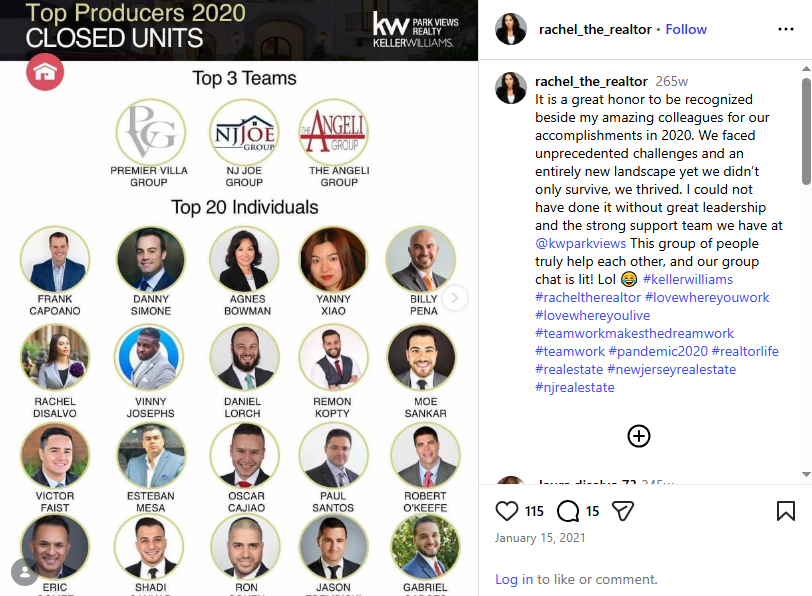
Share posts comparing your services with competitors. Highlight strengths like client testimonials, faster sales, or local expertise. Comparisons show your advantages without being negative.
98. Safety and Security Protocols
Post about safety measures during open houses and showings. Topics can include visitor sign-ins, mask use, or digital walkthroughs. These reassure both sellers and buyers.
99. Painting Tips 101
Post about choosing paint colors, accent walls, or exterior updates. Painting tips enhance curb appeal and are easy-to-use ideas for real estate posts for social media.
100. Gardening Tips 101
Share posts about gardening improvements like low-maintenance plants, seasonal flowers, or simple lawn care. These boost curb appeal and make engaging additions to real estate posts for social media.
To Conclude
Social media plays a major role in real estate success. These post ideas help agents create content that attracts attention and keeps audiences engaged.
From showcasing listings to sharing local stories, mixing educational, visual, and interactive posts helps you stay relevant and build connections. Adding creative designs and engaging questions ensures your content stands out.
Agents can also access free real estate social media templates through tools like Canva, scheduling platforms, and industry websites. These resources make it easier to keep a steady flow of content.
Together, these approaches give you everything needed to use real estate posts for social media as a practical guide to building brand presence, driving engagement, and connecting with clients.
FAQs on Real Estate Posts for Social Media
1. How often should real estate agents post on social media?
Aim for 3–5 posts per week across your main channels. This keeps your audience engaged without overwhelming them. Posts like those in real estate posts for social media help keep your calendar full.
2. What are the best times to post real estate content for maximum engagement?
Best time for posting on social media varies by platform. For example, Facebook performs well from 8 a.m.–12 p.m., while Instagram sees higher activity between 5–7 p.m. Test and adjust based on your own audience activity.
3. How do you introduce yourself as a new realtor on social media?
Start with a strong bio that explains your journey into real estate. Share what motivates you and your commitment to helping clients. Add a friendly photo or short intro video for a personal touch.
4. What types of content generate the most leads in real estate social media marketing?
Content that drives leads includes client testimonials, quality listing photos, local market updates, and educational posts such as buying steps or home maintenance tips. These are easy wins to adapt from real estate posts for social media.
5. How can I measure the success of my real estate social media posts?
Track metrics like engagement (likes, comments, shares), reach, and clicks. Use built-in platform insights or Google Analytics to see what’s working and adjust your posting plan.

Debbie Moran is a Digital marketing strategist with 5+ years of experience producing advertising for brands and helping leaders showcase their brand to the correct audience. She has been a part of RecurPost since 2019 and handles all the activities required to grow our brand’s online presence.





